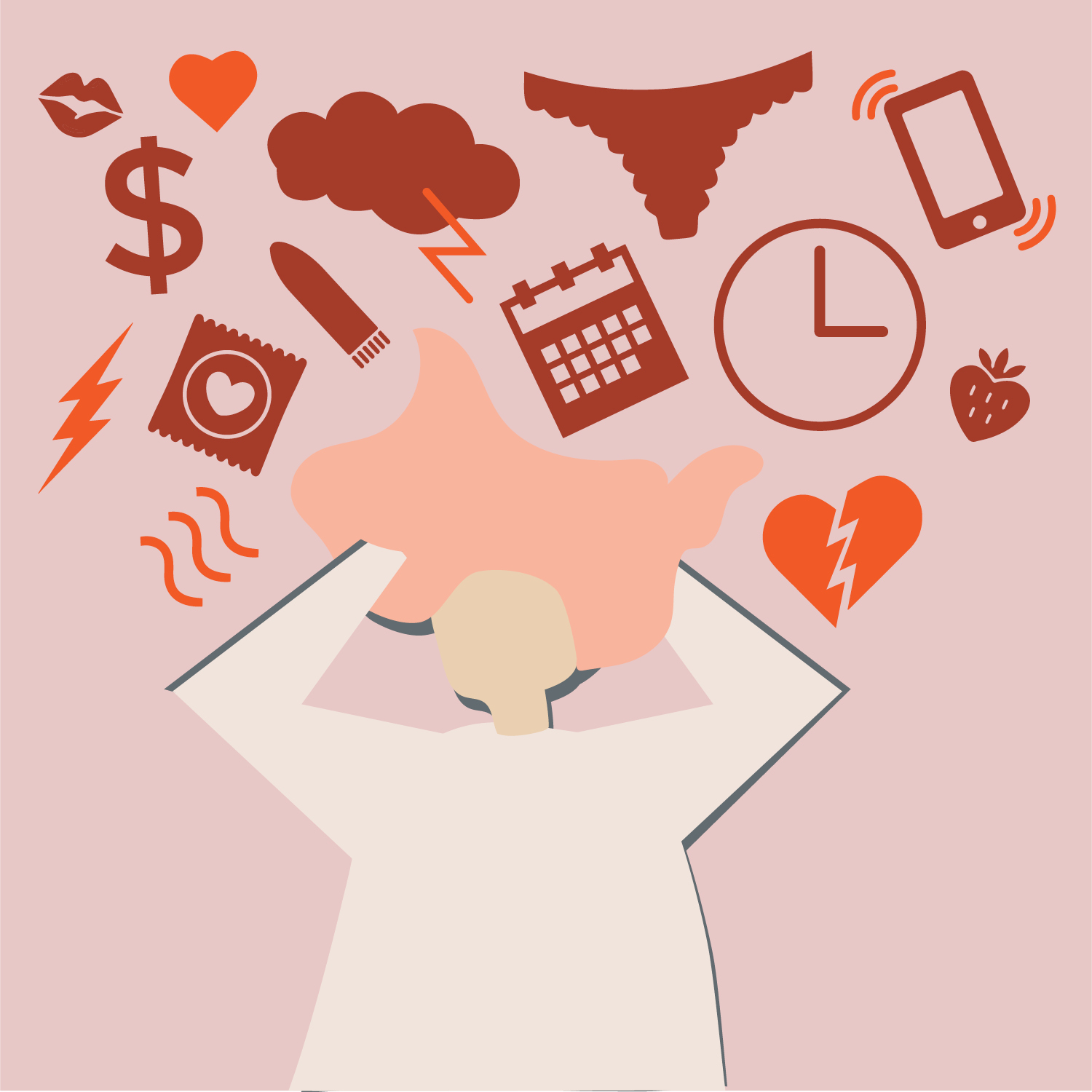Jun 03, 2025
NAVIGATING MENSTRUAL HEALTH AFTER CANCER TREATMENT
Cancer treatment is a challenging experience that can reshape many aspects of life, including your menstrual health. For those undergoing chemotherapy, the treatment often impacts the menstrual cycle, leaving questions about what to expect during and after recovery. While these changes are common, understanding the process can help you feel more prepared and in control.
Let’s explore how chemotherapy affects menstrual health, what to anticipate with your first period after treatment, and how to navigate this journey with care and confidence.
How Can Chemotherapy Affect Your Menstrual Cycle?
Chemotherapy, while effective at targeting cancer cells, can disrupt the ovaries due to its impact on fast-dividing cells. Since the ovaries contain fast-dividing cells, this treatment may cause menstrual cycles to pause, become irregular, or stop entirely during treatment. The extent of these changes depends on factors such as:
- Age: Younger individuals are more likely to have their cycles resume and return to a regular pattern earlier post-treatment.
- Chemotherapy Type: Certain drugs are more likely to affect ovarian function.
- Health and Cancer Type: Overall health and specific diagnoses play a significant role.
It’s important to remember that every person’s body responds differently, so there’s no one-size-fits-all timeline for how or when cycles may return.
What to Expect with Your First Period After Chemo
The first period after chemo can feel like a milestone - a sign that your body is finding its rhythm again. However, it’s not unusual for it to differ from what you’re used to.
- Timing: For some, menstruation may resume within a few months of completing treatment, while for others, it could take a year or more.
- Flow and Symptoms: The first period might be heavier or lighter than before, with irregular spotting or changes in cramping patterns.
- Predictability: Cycles might initially be erratic as your body adjusts.
These changes can be unsettling, but they’re often temporary as your system recovers. If heavy bleeding or severe pain occurs, it’s a good idea to consult your healthcare provider.
The Menstrual Cycle After Chemotherapy: What Changes?
Even when periods return, the menstrual cycle might not look the same. Hormonal fluctuations caused by treatment can lead to:
- Longer or shorter cycles
- Skipped periods
- Altered symptoms, such as reduced PMS or heightened cramping
Tracking your cycle with an app or journal can help you spot patterns and better communicate with your doctor if issues arise.
Emotional Considerations
The physical changes to your menstrual cycle are just one part of the picture. Emotionally, these shifts can be equally significant.
For some, the return of menstruation after chemotherapy brings relief - a sign of recovery and resilience. For others, it might prompt anxiety, especially if cycles don’t resume or fertility concerns arise.
Acknowledging these feelings is crucial. Whether you’re celebrating your body’s progress or navigating grief over changes, seeking support from friends, family, or professionals can make a meaningful difference.
Managing Menstrual Health Post-Treatment
Here are some practical tips to help you navigate menstrual health after cancer treatment:
- Stay Connected with Your Healthcare Team
Regular check-ups are essential for monitoring recovery and addressing any concerns about periods or fertility. - Track Your Cycle
Keep a record of flow, duration, and symptoms to identify patterns or irregularities. - Support Your Body with Nutrition
A diet rich in whole foods, antioxidants, and hydration can promote hormonal balance and overall recovery. - Consider Hormonal Therapies
If recommended by your doctor, these therapies can help regulate cycles or manage symptoms. - Be Kind to Yourself
Healing takes time. It’s okay to have questions, feel frustrated, or celebrate small victories - every step forward is progress.
Fertility and Long-Term Health
For many, questions about fertility naturally arise when discussing menstrual health after chemotherapy. While the resumption of periods is a positive sign, it doesn’t always guarantee fertility. If family planning is on your mind, discuss fertility assessments or preservation options with your doctor as early as possible.
Even without immediate plans to conceive, understanding your body’s reproductive health post-treatment can provide clarity and help guide your decisions.
When to Seek Medical Advice
Although changes in menstruation are common after cancer treatment, certain symptoms warrant medical attention:
- Heavy or prolonged bleeding
- Severe cramping or pain
- No menstruation for over a year if premenopausal
- Other unusual symptoms, like fever or discharge
Early intervention can address potential issues, ensuring you stay on the right track to recovery.
Moving Forward
Menstrual health after cancer treatment is a personal and often unpredictable journey. Whether your cycle returns quickly, takes time, or doesn’t return at all, understanding the process can empower you to take charge of your health.
The first period after chemo is just one step in your body’s healing process - a testament to your strength and resilience. By staying informed, leaning on your healthcare team, and seeking support when needed, you can navigate this phase with confidence and clarity.
Above all, remember that recovery is different for each person. Honour your progress and give yourself the compassion and patience you deserve as you move forward.
Blogs

Jun 08, 2022
EXPLORING PERIOD CARE IN CULTURES AROUND THE WORLD
Our TOM Talks panelist Sabina McKenna explores how different cultures around the world approach period care.
Read More
Jun 08, 2022
STOP APOLOGISING FOR HAVING YOUR PERIOD
Our TOM Talks panelist Mel Mason talks about the importance of not apologising for having your period.
Read More
Jun 07, 2022
STRESSED? NOT SLEEPING? TRYING TO CONCEIVE?
TOM Talk's panelist Georgia Hartmann discussed the links between stress, sleep and fertility.
Read More
Jun 07, 2022
STRESS AND HOW IT AFFECTS YOUR SEX DRIVE
Certified sex coach Georgia Grace is here to unpack the link between stress and sex.
Read MoreProducts